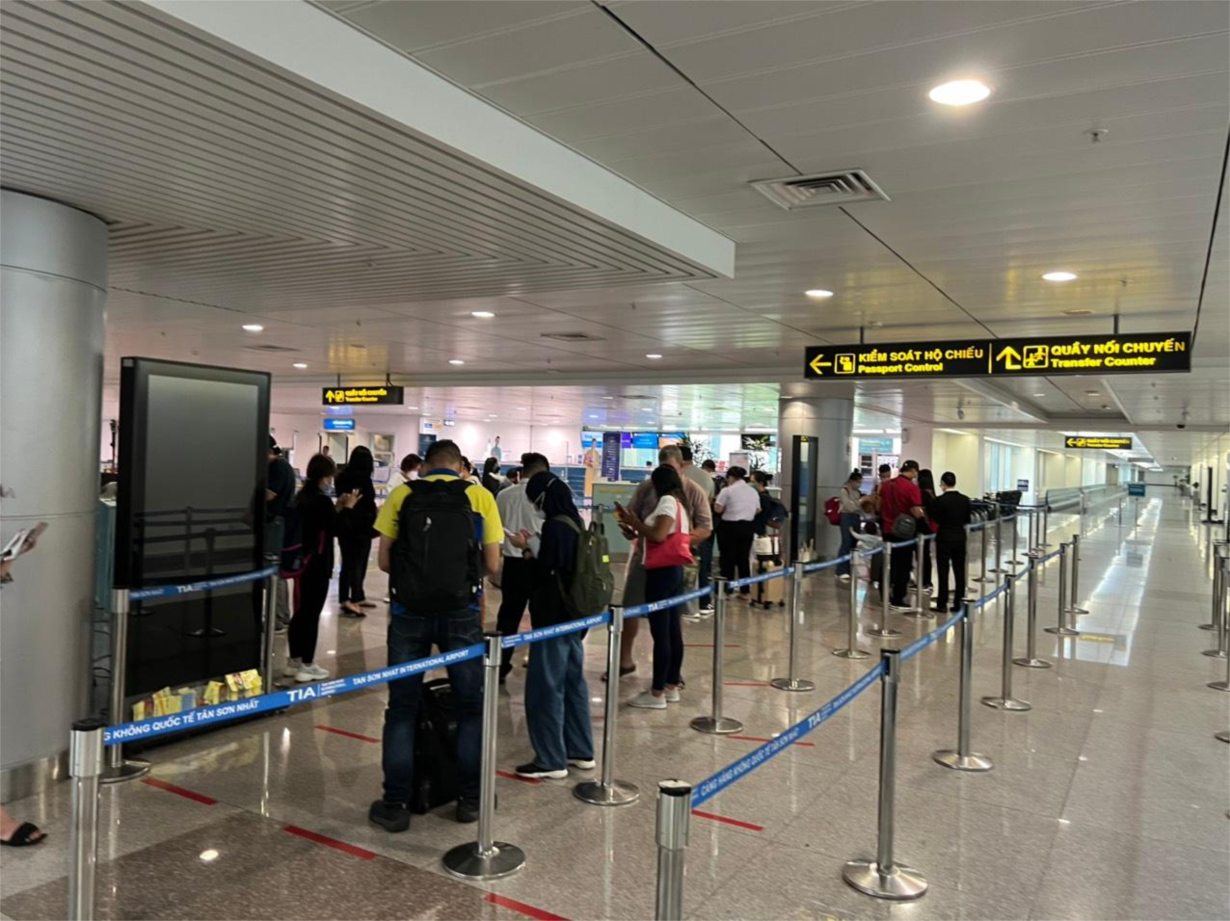What do medical experts say about stopping Covid-19 testing for incoming passengers?
The Ministry of Health has just consulted with the International Air Transport Association, the Civil Aviation Authority of Vietnam and other units on temporarily suspending the requirement for Covid-19 testing for people entering the country by air.
"Basically, we received consensus from the units," said a representative of the Department of Preventive Medicine.
In fact, this proposal was raised by experts before, when international tourists were returning to Vietnam after a "frozen" period because ofCovid-19.
According to Associate Professor Nguyen Lan Hieu - Director of Hanoi Medical University Hospital, the number of countries requiring a negative SARS-CoV-2 test result before entry is very small.
He analyzed two main reasons. First, the epidemic has subsided globally and the number of countries applying zero Covid-19 policies can be counted on the fingers of one hand. Second, scientifically, the value of Covid-19 tests is very limited at this stage. 24 hours for rapid tests and 72 hours for PCR are purely for reference only.
“Therefore, the regulation that requires Covid-19 testing before entering Vietnam has made it difficult for people and international visitors to Vietnam,” Associate Professor Hieu frankly expressed.
 |
| Immigration area at Tan Son Nhat airport, April 2022. |
The proposal to stop Covid-19 testing before entry was made by the Ministry of Health after Vietnam stopped health declarations for people entering the country (from April 27) and stopped domestic health declarations (from April 30).
Agreeing with the Ministry of Health, Associate Professor Do Van Dung from the University of Medicine and Pharmacy in Ho Chi Minh City said that the Covid-19 situation in Vietnam is stable and there is no risk of dangerous variants appearing in the world. Therefore, stopping testing for incoming passengers is completely reasonable.
Master, Doctor Do Cao Van Anh - Pham Ngoc Thach University of Medicine analyzed, currently on the SIG 4 classification table of SARS-CoV-2 variants, the worrying variant group only has Omiron, no longer Delta. The general assessment so far shows that Omicron only causes upper respiratory symptoms, not as many complications as the previous Delta strain.
In addition, the Covid-19 vaccination campaign in our country has so far ensured effective coverage. According to the Ministry of Health, as of May 12, the whole country has injected 216,326,254 doses.
Of which, the number of doses for people aged 18 and over is 196,811,060, including doses 1, 2, 3, additional doses, and booster doses. Children aged 12-17 have received 17,397,058 doses, including doses 1 and 2. Notably, the group of children aged 5-11 have received 2,118,136 doses (1st dose).
“Thus, the Ministry of Health's proposal to stop pre-entry Covid-19 testing at this time is in line with the epidemic situation and vaccination progress, not too late,” said Dr. Van Anh.
Previously, Associate Professor Nguyen Lan Hieu shared his experience at Changi Airport (Singapore) in early May 2022. Some Vietnamese tourists, after waiting for 3-4 hours, had to cancel their flight from Singapore to Ho Chi Minh City at the last minute because they could not complete the rapid test procedure at Changi Airport.
 |
| Nghe An has received an additional 48,600 doses of Moderna vaccine for children aged 5 to 11 (phase 2) from the Ministry of Health. Photo courtesy of My Ha |
The reason is that, according to Vietnam's regulations, visitors need to have a negative Covid-19 test certificate using the PCR method within 72 hours or 24 hours for rapid tests. The above regulations have more or less made it difficult for visitors to enter Vietnam.
As of the end of March 2022, more than 50 countries and territories around the world have temporarily suspended pre-entry testing requirements for international visitors. These include the UK, Norway, Iceland, Canada, Peru, Maldives, etc. Of course, many countries only apply the requirement to visitors who have been fully vaccinated.
In Southeast Asia, Cambodia, Singapore, Indonesia, the Philippines and Thailand are also gradually removing this regulation.



